Andrea Wooles
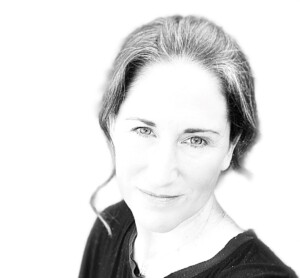 Andrea Wooles has worked in high performance and community sport for over 20 years, starting with 5 years as the Performance Scientist for the British Cycling team where she first witnessed and experienced the impact that maltreatment could have on athletes and staff. Since then, she has worked in various roles where she has tried to make things better by building better systems. She spent over a decade working for Cycling Canada setting up and running the athlete support services and innovation projects. She went on to become a Certified and Accredited Organizational Coach to learn how to create positive cultures for everyone. She found her true calling when she started working as the Manager of Safe Sport for viaSport back in 2021, where her role is to ensure that participants in British Columbia have access to safe, welcoming, and accessible sporting environments, and where she’s grateful for the opportunity to make a meaningful difference.
Andrea Wooles has worked in high performance and community sport for over 20 years, starting with 5 years as the Performance Scientist for the British Cycling team where she first witnessed and experienced the impact that maltreatment could have on athletes and staff. Since then, she has worked in various roles where she has tried to make things better by building better systems. She spent over a decade working for Cycling Canada setting up and running the athlete support services and innovation projects. She went on to become a Certified and Accredited Organizational Coach to learn how to create positive cultures for everyone. She found her true calling when she started working as the Manager of Safe Sport for viaSport back in 2021, where her role is to ensure that participants in British Columbia have access to safe, welcoming, and accessible sporting environments, and where she’s grateful for the opportunity to make a meaningful difference.
Bryan Heal
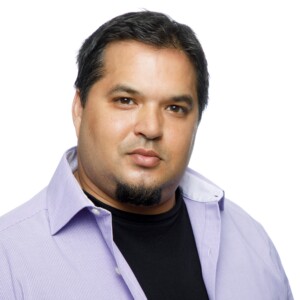 Bryan Heal is the Social Impact Research Lead at Maple Leaf Sports and Entertainment (MLSE). He leads on initiatives such as the Change the Game research program for the MLSE Foundation, MLSE LaunchPad, and MLSE Community Engagement and Social Impact departments to advance access, engagement, equity and positive outcomes for youth in sport. At work, Heal is passionate about storytelling and partnerships, which can help people identify their next move. Outside of work, he serves on the Strides Board of Directors, Toronto’s Lead Agency for Infant, Child and Youth Mental Health, where he is Chair of its Quality Committee.
Bryan Heal is the Social Impact Research Lead at Maple Leaf Sports and Entertainment (MLSE). He leads on initiatives such as the Change the Game research program for the MLSE Foundation, MLSE LaunchPad, and MLSE Community Engagement and Social Impact departments to advance access, engagement, equity and positive outcomes for youth in sport. At work, Heal is passionate about storytelling and partnerships, which can help people identify their next move. Outside of work, he serves on the Strides Board of Directors, Toronto’s Lead Agency for Infant, Child and Youth Mental Health, where he is Chair of its Quality Committee.
Christianne Varty, Ph.D.
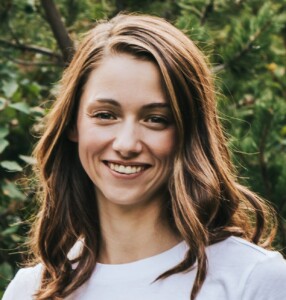 Christianne Varty, Ph.D., is a researcher, advocate, and former national team athlete. She holds a Ph.D. in Organization Studies from the Schulich School of Business, York University where her research focused on workplace equity, diversity, and inclusion initiatives and how organizations can be authentic in their efforts. As Insights Manager at Canadian Women & Sport, Dr. Varty combines her commitment to advancing equity and inclusion with a passion for sport. She manages Canadian Women & Sport’s research projects and partners, supports program development and evaluation, and mobilizes insights to build knowledge and competency among organizations and leaders to advance gender equity and create better sport. Her belief in the power and potential of sport stems from over 20 years involvement in ringette as an athlete, coach, advocate, and board member.
Christianne Varty, Ph.D., is a researcher, advocate, and former national team athlete. She holds a Ph.D. in Organization Studies from the Schulich School of Business, York University where her research focused on workplace equity, diversity, and inclusion initiatives and how organizations can be authentic in their efforts. As Insights Manager at Canadian Women & Sport, Dr. Varty combines her commitment to advancing equity and inclusion with a passion for sport. She manages Canadian Women & Sport’s research projects and partners, supports program development and evaluation, and mobilizes insights to build knowledge and competency among organizations and leaders to advance gender equity and create better sport. Her belief in the power and potential of sport stems from over 20 years involvement in ringette as an athlete, coach, advocate, and board member.
Delphine Labbé, Ph.D.
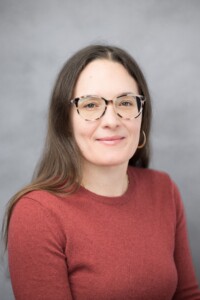 Delphine Labbé is an assistant professor in the Disability and Human Development at the University of Illinois at Chicago. Her research focuses on promoting full participation of people living with disabilities of all age, by better understanding the person-environment interaction and developing interventions to create inclusive communities. She is also interested in health promotion of people with disabilities through adaptive leisure, sports and recreational physical activity. Dr. Labbé’s research program is grounded in the social model of disability, and the ecosystemic approach. She is also deeply committed in creating knowledge and interventions with the people with disabilities and relevant stakeholders from different sectors (for example: municipal, health care), to produce policy and social changes. She is using various qualitative and mixed method approaches such as interviews, photovoice, Q-methodology, surveys, in her research.
Delphine Labbé is an assistant professor in the Disability and Human Development at the University of Illinois at Chicago. Her research focuses on promoting full participation of people living with disabilities of all age, by better understanding the person-environment interaction and developing interventions to create inclusive communities. She is also interested in health promotion of people with disabilities through adaptive leisure, sports and recreational physical activity. Dr. Labbé’s research program is grounded in the social model of disability, and the ecosystemic approach. She is also deeply committed in creating knowledge and interventions with the people with disabilities and relevant stakeholders from different sectors (for example: municipal, health care), to produce policy and social changes. She is using various qualitative and mixed method approaches such as interviews, photovoice, Q-methodology, surveys, in her research.
Elana Liberman
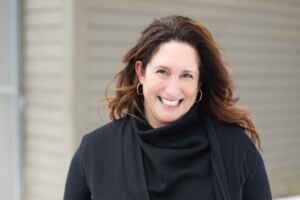 Elana Liberman, a former competitive freestyle (ballet) skier, is a lawyer and has her Master of Laws from Dalhousie University, focusing on child protection and constitutional law. Liberman is an experienced conciliator and educator, and started working with Sport Nova Scotia as the Safe Sport Lead in January 2020. In that role, she has developed, implemented, and managed comprehensive safe sport strategies for the province to create safe, welcoming and inclusive sporting and recreation experiences. Liberman is a True Sport Champion and believes that positive, values-based sporting experiences can lead to safer sporting experiences. Liberman was also a member of Hockey Nova Scotia’s Diversity and Inclusion Task Force and the Coaching Association of Canada’s Rule of Two Task Force. She is actively involved in the creation and implementation of Nova Scotia’s independent complaints process to address maltreatment in sports and has recently commenced a project with the Restorative Lab to examine the utilization of a restorative approach to sporting issues and concerns. She teaches a Safe Sport and Ethics course at Dalhousie University and was involved in helping to create safe sport policies and education for NAIG.
Elana Liberman, a former competitive freestyle (ballet) skier, is a lawyer and has her Master of Laws from Dalhousie University, focusing on child protection and constitutional law. Liberman is an experienced conciliator and educator, and started working with Sport Nova Scotia as the Safe Sport Lead in January 2020. In that role, she has developed, implemented, and managed comprehensive safe sport strategies for the province to create safe, welcoming and inclusive sporting and recreation experiences. Liberman is a True Sport Champion and believes that positive, values-based sporting experiences can lead to safer sporting experiences. Liberman was also a member of Hockey Nova Scotia’s Diversity and Inclusion Task Force and the Coaching Association of Canada’s Rule of Two Task Force. She is actively involved in the creation and implementation of Nova Scotia’s independent complaints process to address maltreatment in sports and has recently commenced a project with the Restorative Lab to examine the utilization of a restorative approach to sporting issues and concerns. She teaches a Safe Sport and Ethics course at Dalhousie University and was involved in helping to create safe sport policies and education for NAIG.
Eric MacIntosh, Ph.D.
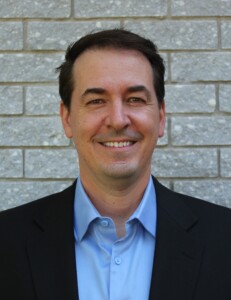 Eric MacIntosh, Ph.D. is a Professor in the School of Human Kinetics at the University of Ottawa. His research and teaching focuses on various organizational behaviour and international sport management topics covering management concepts such as organizational culture, leadership, socialization, development, corporate image and brand. His research delves into the functioning of the organization and how leadership can form and shape organizational culture which can transmit positively internally and outwardly into the marketplace, including shifting to a safer sport culture in Canada. He is a North American Society for Sport Management Research Fellow. Dr. MacIntosh has worked with and researched many prominent national and international sport organizations (e.g., Commonwealth Games Federation, GoodLife Fitness, Right to Play, NHL, IOC). He is a well-published scholar and is co-editor of International Sport Management and co-author of Organizational Behaviour in Sport.
Eric MacIntosh, Ph.D. is a Professor in the School of Human Kinetics at the University of Ottawa. His research and teaching focuses on various organizational behaviour and international sport management topics covering management concepts such as organizational culture, leadership, socialization, development, corporate image and brand. His research delves into the functioning of the organization and how leadership can form and shape organizational culture which can transmit positively internally and outwardly into the marketplace, including shifting to a safer sport culture in Canada. He is a North American Society for Sport Management Research Fellow. Dr. MacIntosh has worked with and researched many prominent national and international sport organizations (e.g., Commonwealth Games Federation, GoodLife Fitness, Right to Play, NHL, IOC). He is a well-published scholar and is co-editor of International Sport Management and co-author of Organizational Behaviour in Sport.
Eva Havaris
 Eva Havaris is a veteran executive leader in the Canadian sports industry. With a background as a Division One collegiate soccer player and coach, she achieved the Canadian University Sport women’s soccer MVP in 2003 and was inducted into the Western Mustangs Hall of Fame in 2019. Throughout her career, Havaris has held key positions in sports, serving as the Associate Director of High-Performance Women’s Rugby and Rugby Development Manager at Rugby Canada. Later, she assumed leadership roles as the CEO of Taekwondo Canada (2010-2014) and Equestrian Canada (2014-2017). In 2018, Havaris joined the Canadian Premier League’s executive team to launch a men’s professional soccer league in Canada, contributing as Vice-President of Strategy and League Operations and EVP/Chief of Staff for York United FC. In 2021, she returned to the National Sport Organization (NSO) community, taking on the role of Vice President Participation and Partnerships at Tennis Canada, a position she currently holds. She holds a Master of Arts in Sport Management from the University of Western Ontario, where she conducted a comprehensive 10-year review of Sport Canada’s Sport Funding and Accountability Framework.
Eva Havaris is a veteran executive leader in the Canadian sports industry. With a background as a Division One collegiate soccer player and coach, she achieved the Canadian University Sport women’s soccer MVP in 2003 and was inducted into the Western Mustangs Hall of Fame in 2019. Throughout her career, Havaris has held key positions in sports, serving as the Associate Director of High-Performance Women’s Rugby and Rugby Development Manager at Rugby Canada. Later, she assumed leadership roles as the CEO of Taekwondo Canada (2010-2014) and Equestrian Canada (2014-2017). In 2018, Havaris joined the Canadian Premier League’s executive team to launch a men’s professional soccer league in Canada, contributing as Vice-President of Strategy and League Operations and EVP/Chief of Staff for York United FC. In 2021, she returned to the National Sport Organization (NSO) community, taking on the role of Vice President Participation and Partnerships at Tennis Canada, a position she currently holds. She holds a Master of Arts in Sport Management from the University of Western Ontario, where she conducted a comprehensive 10-year review of Sport Canada’s Sport Funding and Accountability Framework.
Gordon Bloom, Ph.D.
 Gordon Bloom, Ph.D., is a professor and research director at McGill University in Montreal. Dr. Bloom has worked with the world’s leading coaches and athletes as both a researcher and sport psychology practitioner for over 30 years. He is currently the director of the McGill Sport Psychology Research Laboratory that is focused on applied and theoretical research within sport. He has developed an internationally recognized coaching research program related to the knowledge, strategies, and behaviours employed by coaches in terms of leadership practices, mentoring, and team building that develop successful teams and athletes. Other streams of research Dr. Bloom investigates are the various social and psychological factors that affect and improve recovery from concussions. He has also received numerous invitations from academic and sport coaching associations around the globe to present his research and practical experiences to scientists, athletes, administrators, and coaches.
Gordon Bloom, Ph.D., is a professor and research director at McGill University in Montreal. Dr. Bloom has worked with the world’s leading coaches and athletes as both a researcher and sport psychology practitioner for over 30 years. He is currently the director of the McGill Sport Psychology Research Laboratory that is focused on applied and theoretical research within sport. He has developed an internationally recognized coaching research program related to the knowledge, strategies, and behaviours employed by coaches in terms of leadership practices, mentoring, and team building that develop successful teams and athletes. Other streams of research Dr. Bloom investigates are the various social and psychological factors that affect and improve recovery from concussions. He has also received numerous invitations from academic and sport coaching associations around the globe to present his research and practical experiences to scientists, athletes, administrators, and coaches.
Heather Gainforth, Ph.D.
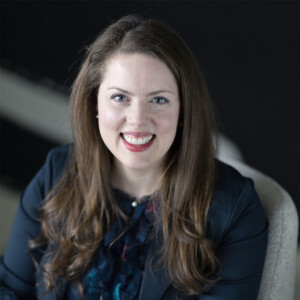 Dr. Heather Gainforth is an ICORD Principal Investigator, Associate Professor at UBC Okanagan, and a former Michael Smith Health Research BC Scholar. Completing her M.Sc. and Ph.D. in Kinesiology at Queen’s University, Dr. Gainforth completed her post-doctoral research at University College London in the Centre for Behaviour Change. Dr. Gainforth leads the Applied Behaviour Change Lab within UBC Okanagan’s CFI-funded Centre for Health Behaviour Change. Dr. Gainforth’s research program aims to investigate how evidence-based behaviour change research is applied in the real world, and advance the science and practice of integrated knowledge translation (IKT). Dr. Gainforth leads the SSHRC-funded research partnership that co-developed the first integrated knowledge translation (IKT) guiding principles for conducting spinal cord injury (SCI) research in partnership.
Dr. Heather Gainforth is an ICORD Principal Investigator, Associate Professor at UBC Okanagan, and a former Michael Smith Health Research BC Scholar. Completing her M.Sc. and Ph.D. in Kinesiology at Queen’s University, Dr. Gainforth completed her post-doctoral research at University College London in the Centre for Behaviour Change. Dr. Gainforth leads the Applied Behaviour Change Lab within UBC Okanagan’s CFI-funded Centre for Health Behaviour Change. Dr. Gainforth’s research program aims to investigate how evidence-based behaviour change research is applied in the real world, and advance the science and practice of integrated knowledge translation (IKT). Dr. Gainforth leads the SSHRC-funded research partnership that co-developed the first integrated knowledge translation (IKT) guiding principles for conducting spinal cord injury (SCI) research in partnership.
Janice Forsyth, Ph.D.
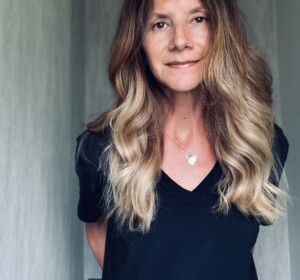 Janice Forsyth, member of the Fisher River Cree First Nation, is a Professor in the Faculty of Education, School of Kinesiology, at the University of British Columbia and a recognized leader in Indigenous sport development in Canada. She has more than 20 years of experience exploring the relationship between sport and culture from Indigenous points of view and translating that knowledge into action by working with organizations and governments to align their policies and practices with Indigenous priorities for sport. Her research experience spans sport, health, education, and media, and embraces diverse approaches to knowledge generation and dissemination. Her expertise has attracted significant media attention, conducting over 330 interviews with the CBC National, The Globe and Mail, The Guardian, Forbes, The New York Times, and BBC Sports. Forsyth has several award-winning works: Reclaiming Tom Longboat: Indigenous Self-Determination in Canadian Sport (2020), and Aboriginal Peoples and Sport in Canada: Historical Foundations and Contemporary Issues (2013). In 2017, she was elected to the College of the Royal Society of Canada and in 2023 Physical and Health Education Canada named her as a national recipient of the R. Tait McKenzie Award.
Janice Forsyth, member of the Fisher River Cree First Nation, is a Professor in the Faculty of Education, School of Kinesiology, at the University of British Columbia and a recognized leader in Indigenous sport development in Canada. She has more than 20 years of experience exploring the relationship between sport and culture from Indigenous points of view and translating that knowledge into action by working with organizations and governments to align their policies and practices with Indigenous priorities for sport. Her research experience spans sport, health, education, and media, and embraces diverse approaches to knowledge generation and dissemination. Her expertise has attracted significant media attention, conducting over 330 interviews with the CBC National, The Globe and Mail, The Guardian, Forbes, The New York Times, and BBC Sports. Forsyth has several award-winning works: Reclaiming Tom Longboat: Indigenous Self-Determination in Canadian Sport (2020), and Aboriginal Peoples and Sport in Canada: Historical Foundations and Contemporary Issues (2013). In 2017, she was elected to the College of the Royal Society of Canada and in 2023 Physical and Health Education Canada named her as a national recipient of the R. Tait McKenzie Award.
Jean Côté, Ph.D.
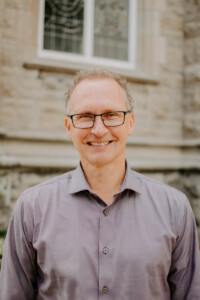 Jean Côté, Ph.D. is a Professor in the School of Kinesiology and Health Studies at Queen’s University, where he served as the Director from 2006-2019. Dr. Côté’s research interests focus on children in sport, the developmental and psychosocial factors that affect sport and physical activity performance and participation, along with the complex interaction of children, parents, and coaches in the development of talent and in the achievement of personal excellence. He looks to identify variables and behaviours within family, performers and coaches that create favourable conditions for excellence and participation in sports. He is a Fellow of the Canadian Society for Psychomotor Learning and Sport Psychology (SCAPPS) and the International Society of Sport Psychology (ISSP).
Jean Côté, Ph.D. is a Professor in the School of Kinesiology and Health Studies at Queen’s University, where he served as the Director from 2006-2019. Dr. Côté’s research interests focus on children in sport, the developmental and psychosocial factors that affect sport and physical activity performance and participation, along with the complex interaction of children, parents, and coaches in the development of talent and in the achievement of personal excellence. He looks to identify variables and behaviours within family, performers and coaches that create favourable conditions for excellence and participation in sports. He is a Fellow of the Canadian Society for Psychomotor Learning and Sport Psychology (SCAPPS) and the International Society of Sport Psychology (ISSP).
Jennifer Bennett
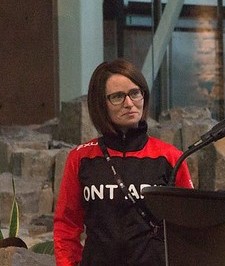 Jennifer is a passionate and dynamic sport leader with a wealth of experience in the Sport industry. As the Director of Safe Sport and Integrity at Tennis Canada, she is responsible for delivering on Tennis Canada’s commitment to create a safe, positive, and inclusive environment for the tennis community at every level of the sport. Her past work experience includes leadership roles in the Sport Management/Sport Business Management program at Humber College, the Sport and Recreation Branch of the Government of Ontario, Ontario Federation of School Athletic Associations and Ontario Volleyball. In addition, she has served as Chef de Mission for Team Ontario for the 2017 and 2019 Canada Games and continued to support the team in a leadership role through 2022. She volunteers her time with local community sport organizations including the North Toronto Soccer Club.
Jennifer is a passionate and dynamic sport leader with a wealth of experience in the Sport industry. As the Director of Safe Sport and Integrity at Tennis Canada, she is responsible for delivering on Tennis Canada’s commitment to create a safe, positive, and inclusive environment for the tennis community at every level of the sport. Her past work experience includes leadership roles in the Sport Management/Sport Business Management program at Humber College, the Sport and Recreation Branch of the Government of Ontario, Ontario Federation of School Athletic Associations and Ontario Volleyball. In addition, she has served as Chef de Mission for Team Ontario for the 2017 and 2019 Canada Games and continued to support the team in a leadership role through 2022. She volunteers her time with local community sport organizations including the North Toronto Soccer Club.
Jennifer Walinga, Ph.D.
 Jennifer Walinga, Ph.D. has been an educator for 30 years and a former member of Canada’s Commonwealth, World and Olympic gold medal rowing teams (1983 to 1992). Dr. Walinga draws on her personal, professional, and educational experiences when facilitating problem solving and leadership processes in organizations. She blends organizational, educational, and sport theories in designing communication, change and performance interventions in organizations. She is an award-winning researcher focusing her projects on the central theme of optimal human performance. Her research interests include organizational communication, team dynamics, creative insight, social innovation, workplace health, sport education and high performance. Dr. Walinga is currently working on culture building projects in the spheres of sport, women in leadership, and workplace health.
Jennifer Walinga, Ph.D. has been an educator for 30 years and a former member of Canada’s Commonwealth, World and Olympic gold medal rowing teams (1983 to 1992). Dr. Walinga draws on her personal, professional, and educational experiences when facilitating problem solving and leadership processes in organizations. She blends organizational, educational, and sport theories in designing communication, change and performance interventions in organizations. She is an award-winning researcher focusing her projects on the central theme of optimal human performance. Her research interests include organizational communication, team dynamics, creative insight, social innovation, workplace health, sport education and high performance. Dr. Walinga is currently working on culture building projects in the spheres of sport, women in leadership, and workplace health.
Joe D’Eramo
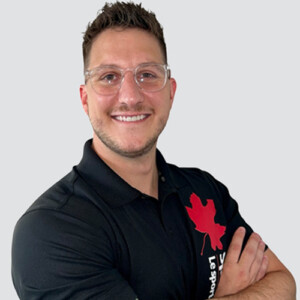 Joe D’Eramo is the Manager of Quality Sport at Sport for Life, and strives to leverage his diverse background in business, human rights, and international development to provide comprehensive support to all stakeholders within Canada’s sport ecosystem. His aim is to facilitate the realization of quality sport experiences for everyone involved while simultaneously fostering personal and social development through sport and physical activity. D’Eramo’s professional journey spans international development, sport for development, project management, monitoring and evaluation, and business management. His educational foundation includes studies in business, human rights, and European Union studies, reinforcing his multifaceted expertise.
Joe D’Eramo is the Manager of Quality Sport at Sport for Life, and strives to leverage his diverse background in business, human rights, and international development to provide comprehensive support to all stakeholders within Canada’s sport ecosystem. His aim is to facilitate the realization of quality sport experiences for everyone involved while simultaneously fostering personal and social development through sport and physical activity. D’Eramo’s professional journey spans international development, sport for development, project management, monitoring and evaluation, and business management. His educational foundation includes studies in business, human rights, and European Union studies, reinforcing his multifaceted expertise.
Joseph Gurgis, Ph.D.
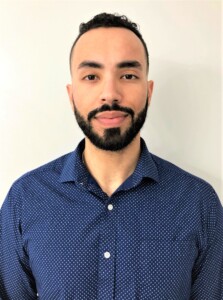 Dr. Joseph Gurgis is an Assistant Teaching Professor in the Faculty of Health Sciences at Ontario Tech University. His academic expertise primarily lies in the domains of Safe Sport and coach development, with a particular emphasis on investigating the psychosocial determinants that impact the experiences of equity-denied populations. Alongside his scholarly pursuits, Dr. Gurgis has made significant contributions to the Canadian sport community as a practitioner. He is a Coach Developer for the Coaches Association of Ontario and was the lead content developer for the Coaching Association of Canada’s Mandated Safe Sport Training and NCCP Creating a Positive Sport Environment initiatives, thus further demonstrating his commitment to promoting safe and inclusive sport for all.
Dr. Joseph Gurgis is an Assistant Teaching Professor in the Faculty of Health Sciences at Ontario Tech University. His academic expertise primarily lies in the domains of Safe Sport and coach development, with a particular emphasis on investigating the psychosocial determinants that impact the experiences of equity-denied populations. Alongside his scholarly pursuits, Dr. Gurgis has made significant contributions to the Canadian sport community as a practitioner. He is a Coach Developer for the Coaches Association of Ontario and was the lead content developer for the Coaching Association of Canada’s Mandated Safe Sport Training and NCCP Creating a Positive Sport Environment initiatives, thus further demonstrating his commitment to promoting safe and inclusive sport for all.
Leigh Vanderloo, Ph.D.
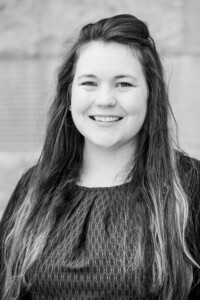 Leigh Vanderloo obtained her Ph.D. ’s in Health Promotion from the University of Western Ontario in 2017. Her area of research focuses on the objective measurement of young children’s physical activity levels and sedentary time. Dr. Vanderloo has published some of the first national and international papers examining the variability in young children’s activity levels across various early learning environments as well as exploring approaches for improving objective measurement in this population. Her research interests also include knowledge translation and implementation science. Currently, Dr. Vanderloo is working as the Scientific Director at ParticipACTION and recently completed her Research Fellowship at SickKids Hospital in Toronto, where her research examined the association between physical activity and screen use with various health outcomes in young children (namely, mental health and cardiometabolic risk).
Leigh Vanderloo obtained her Ph.D. ’s in Health Promotion from the University of Western Ontario in 2017. Her area of research focuses on the objective measurement of young children’s physical activity levels and sedentary time. Dr. Vanderloo has published some of the first national and international papers examining the variability in young children’s activity levels across various early learning environments as well as exploring approaches for improving objective measurement in this population. Her research interests also include knowledge translation and implementation science. Currently, Dr. Vanderloo is working as the Scientific Director at ParticipACTION and recently completed her Research Fellowship at SickKids Hospital in Toronto, where her research examined the association between physical activity and screen use with various health outcomes in young children (namely, mental health and cardiometabolic risk).
Linda Pagani, Ph.D.
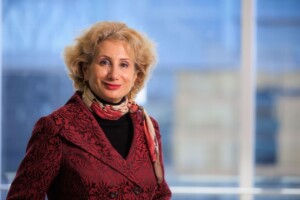 Dr. Linda Pagani, Ph.D., worked as a registered nurse at the Queen Elizabeth Hospital of Montreal in medicine, surgery, CVA rehabilitation, and psychiatry. During that decade, she also earned university degrees at both Concordia University (BA Psychology) and McGill University (MA and Ph.D. Educational and Counseling Psychology) in Montreal. In 1993, Dr. Pagani pursued a postdoctoral fellowship at the Université de Montréal, using some of the most valued and informative longitudinal data sets of North American children. In 1994, Dr. Pagani began her professorial career at the University of Montreal. In 2005, Dr. Pagani was a Professor at the School of Psycho-Education and worked as a Senior Researcher, since 1999, at the CHU Sainte-Justine University Hospital Research Center in the Brain Health Division. Her research expertise examines modifiable factors in early childhood that affect human development and has ultimately targeted improving social/health policies addressing youth. Her main clinical expertise as a practicing clinical health psychologist is the diagnosis and care of children, adolescents, and adults with ADHD, anxiety, and affective disorders.
Dr. Linda Pagani, Ph.D., worked as a registered nurse at the Queen Elizabeth Hospital of Montreal in medicine, surgery, CVA rehabilitation, and psychiatry. During that decade, she also earned university degrees at both Concordia University (BA Psychology) and McGill University (MA and Ph.D. Educational and Counseling Psychology) in Montreal. In 1993, Dr. Pagani pursued a postdoctoral fellowship at the Université de Montréal, using some of the most valued and informative longitudinal data sets of North American children. In 1994, Dr. Pagani began her professorial career at the University of Montreal. In 2005, Dr. Pagani was a Professor at the School of Psycho-Education and worked as a Senior Researcher, since 1999, at the CHU Sainte-Justine University Hospital Research Center in the Brain Health Division. Her research expertise examines modifiable factors in early childhood that affect human development and has ultimately targeted improving social/health policies addressing youth. Her main clinical expertise as a practicing clinical health psychologist is the diagnosis and care of children, adolescents, and adults with ADHD, anxiety, and affective disorders.
Lucie Lapierre, Ph.D.
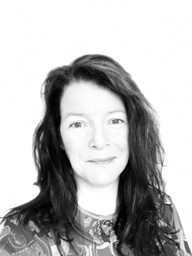 Lucie Lapierre, PhD, is a research analyst at the Public Health Agency of Canada’s (PHAC) Quebec office and has been involved in promoting physically active lifestyles for over 30 years. She has led projects for Kino-Québec, Institut national de santé publique du Québec and Québec en Forme. At the PHAC, she set up a research program on Population Aging and a Physically Active Lifestyle, examining the impact of Canada’s changing demographics on the sport and physical activity ecosystem. After graduating from the figure skating teaching program at Seneca College in Toronto in 1986, Dr. Lapierre returned to Montreal to study kinesiology (UConcordia1990), then at the Université de Montréal, where she completed a master’s degree in community health (2002) and a doctorate in planning (2010).
Lucie Lapierre, PhD, is a research analyst at the Public Health Agency of Canada’s (PHAC) Quebec office and has been involved in promoting physically active lifestyles for over 30 years. She has led projects for Kino-Québec, Institut national de santé publique du Québec and Québec en Forme. At the PHAC, she set up a research program on Population Aging and a Physically Active Lifestyle, examining the impact of Canada’s changing demographics on the sport and physical activity ecosystem. After graduating from the figure skating teaching program at Seneca College in Toronto in 1986, Dr. Lapierre returned to Montreal to study kinesiology (UConcordia1990), then at the Université de Montréal, where she completed a master’s degree in community health (2002) and a doctorate in planning (2010).
Maji Shaikh, Ph.D.
Maji Shaikh completed his Ph.D. in sport-based youth development in 2022 and is a SSHRC post-doctoral fellow at the University of British Columbia in Okanagan. His main area of research is advancing intentional and meaningful engagement in research partnerships across the sport sector. He co-leads the Sport Partnership Collective in collaborating across the North American sport sector with several researchers and knowledge users including administrators, decision- and policy-makers at the local-to-national levels. Dr. Shaikh also consults in the development, implementation, and evaluation of youth sport programming and staff training. He takes a community-engaged approach in collaborating and sharing decision-making with knowledge users to design programs that best meet the needs of their beneficiaries and communities.
Marie-Pier Charest, Ph.D.
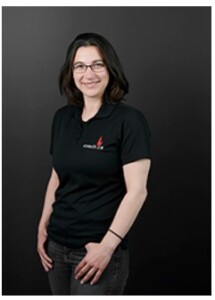 Marie-Pier Charest, Ph.D. is a Coaching Association of Canada (CAC) Coaching Consultant and has been involved in coach education for almost 20 years. She was part of the first team of 5 NCCP multi-sport Master Coach Developers who trained and certified emerging Coach Developers in Canada. After 7 years teaching at Laval University and completing her Ph.D. in 2012, Dr. Charest worked as a Regional Mentor for Speed Skating and then as Director, Coach Training for the Institute National du Sport du Québec (INS). She oversees the National management of the NCCP Advanced Coaching Diploma, a program developing competent coaches who can prepare athletes for podium success at provincial, national, and international level competitions. She leads the research portfolio and the implementation of the CAC research strategy that aims to support quality coaching programs, policies, and practices with enhanced knowledge mobilization.
Marie-Pier Charest, Ph.D. is a Coaching Association of Canada (CAC) Coaching Consultant and has been involved in coach education for almost 20 years. She was part of the first team of 5 NCCP multi-sport Master Coach Developers who trained and certified emerging Coach Developers in Canada. After 7 years teaching at Laval University and completing her Ph.D. in 2012, Dr. Charest worked as a Regional Mentor for Speed Skating and then as Director, Coach Training for the Institute National du Sport du Québec (INS). She oversees the National management of the NCCP Advanced Coaching Diploma, a program developing competent coaches who can prepare athletes for podium success at provincial, national, and international level competitions. She leads the research portfolio and the implementation of the CAC research strategy that aims to support quality coaching programs, policies, and practices with enhanced knowledge mobilization.
Mathieu Bélanger, Ph.D
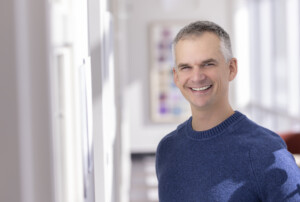 Mathieu Bélanger, Ph.D is a Professor in the Department of Family and Emergency Medicine at the Université de Sherbrooke and Epidemiologist for the Vitalité Health Network. His research team at the IMPACTS Lab adopted a mission to uncover the power of lifestyle behaviours to reduce the burden of chronic diseases. They use epidemiologic methods to study the development of physical activity and other behaviours throughout the life course and identify determinants and outcomes of these behaviours. He published over 125 scientific articles and secured over $15M for his research.
Mathieu Bélanger, Ph.D is a Professor in the Department of Family and Emergency Medicine at the Université de Sherbrooke and Epidemiologist for the Vitalité Health Network. His research team at the IMPACTS Lab adopted a mission to uncover the power of lifestyle behaviours to reduce the burden of chronic diseases. They use epidemiologic methods to study the development of physical activity and other behaviours throughout the life course and identify determinants and outcomes of these behaviours. He published over 125 scientific articles and secured over $15M for his research.
Michael Mahkwa Auksi
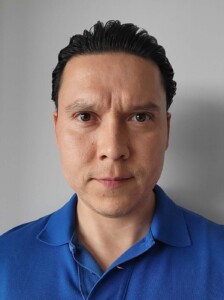 Michael Mahkwa Auksi is a fourth-year doctoral candidate in Kinesiology Sciences at McGill University. Hockey played an integral role in Mahkwa Auksi’s life both personally and professionally. He pinpoints his life changing in 2002, when he played hockey for his community of Lac Seul First Nation at the Northern Bands Hockey Tournament. The pinnacle of his career was in 2016, when he represented his mother’s country of Estonia in Group H Olympic Qualifications. Mahkwa Auksi’s oral history study, analogous to a hockey game, frames the legacies of Lac Seul hockey into three distinct periods. The puck drops on the first period in 1948, marking Lac Seul’s hockey origin story with the introduction of organized hockey at Pelican Lake Indian Residential School. The second period begins in 1970 with a 4-team tournament played among four local Indian Friendship Centres, signifying the emergence of all-First Nations (community-based) hockey in Northwestern Ontario. The third period opens at the turn of the millennium and runs through to the present. The modern era is denoted by Lac Seul hockey players who assertively navigate community-based and mainstream hockey systems.
Michael Mahkwa Auksi is a fourth-year doctoral candidate in Kinesiology Sciences at McGill University. Hockey played an integral role in Mahkwa Auksi’s life both personally and professionally. He pinpoints his life changing in 2002, when he played hockey for his community of Lac Seul First Nation at the Northern Bands Hockey Tournament. The pinnacle of his career was in 2016, when he represented his mother’s country of Estonia in Group H Olympic Qualifications. Mahkwa Auksi’s oral history study, analogous to a hockey game, frames the legacies of Lac Seul hockey into three distinct periods. The puck drops on the first period in 1948, marking Lac Seul’s hockey origin story with the introduction of organized hockey at Pelican Lake Indian Residential School. The second period begins in 1970 with a 4-team tournament played among four local Indian Friendship Centres, signifying the emergence of all-First Nations (community-based) hockey in Northwestern Ontario. The third period opens at the turn of the millennium and runs through to the present. The modern era is denoted by Lac Seul hockey players who assertively navigate community-based and mainstream hockey systems.
Peter Dinsdale
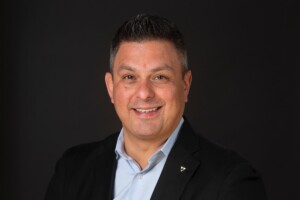 Peter Dinsdale, an Indigenous leader devoted to improving the lives of Indigenous peoples and supporting reconciliation, has worked and volunteered for service delivery and political advocacy organizations on a local, regional and national level. He is currently Chief Executive Officer of YMCA Canada after spending years as the Chief Executive Officer for the Assembly of First Nations and the Executive Director of the National Association of Friendship Centres. He is a founding board member and governance committee chair for ClearRisk Inc., a private technology company. He is also a board member of the Canadian Standards Group, Wawanesa Insurance, and the Canadian Olympic Committee. Peter has completed a Harvard Business School Executive Education program, received the Order of Ontario and the Indspire Award for his work in public service.
Peter Dinsdale, an Indigenous leader devoted to improving the lives of Indigenous peoples and supporting reconciliation, has worked and volunteered for service delivery and political advocacy organizations on a local, regional and national level. He is currently Chief Executive Officer of YMCA Canada after spending years as the Chief Executive Officer for the Assembly of First Nations and the Executive Director of the National Association of Friendship Centres. He is a founding board member and governance committee chair for ClearRisk Inc., a private technology company. He is also a board member of the Canadian Standards Group, Wawanesa Insurance, and the Canadian Olympic Committee. Peter has completed a Harvard Business School Executive Education program, received the Order of Ontario and the Indspire Award for his work in public service.
Sam McKegney, Ph.D.
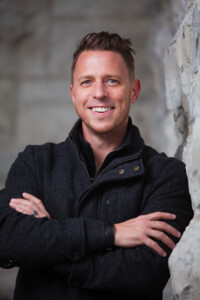 Sam McKegney is a white settler scholar of Indigenous literatures. He has published three books: Carrying the Burden of Peace: Reimagining Indigenous Masculinities through Story (University of Regina Press, 2021), Masculindians: Conversations about Indigenous Manhood (University of Manitoba Press 2014), and Magic Weapons: Aboriginal Writers Remaking Community after Residential School (University of Manitoba Press 2007). McKegney also has articles about masculinity, environmental kinship, prison writing, and mythologies of hockey. He is a researcher with the Indigenous Hockey Research Network and Head of the English Department at Queen’s University, which occupies lands of the Haudenosaunee and Anishinaabe Peoples.
Sam McKegney is a white settler scholar of Indigenous literatures. He has published three books: Carrying the Burden of Peace: Reimagining Indigenous Masculinities through Story (University of Regina Press, 2021), Masculindians: Conversations about Indigenous Manhood (University of Manitoba Press 2014), and Magic Weapons: Aboriginal Writers Remaking Community after Residential School (University of Manitoba Press 2007). McKegney also has articles about masculinity, environmental kinship, prison writing, and mythologies of hockey. He is a researcher with the Indigenous Hockey Research Network and Head of the English Department at Queen’s University, which occupies lands of the Haudenosaunee and Anishinaabe Peoples.

